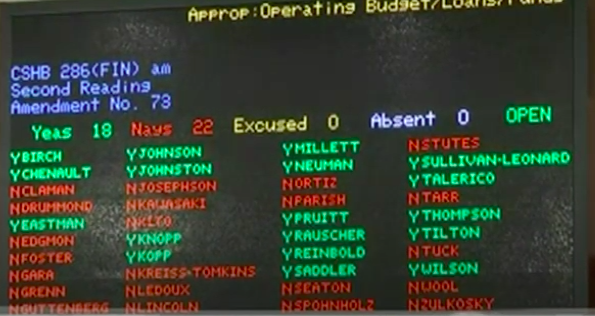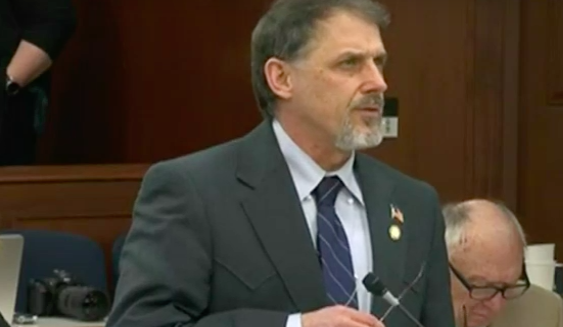AMENDMENT #73 DIES ON CAUCUS LINES
The Alaska House of Representatives heard and rejected dozens of amendments over the past three days, adding some $211,000 for rural emergency response, but rejecting $28 million in cuts that the conservative minority offered.
Amendment 73 went down, like so many offered by conservatives. It related to a well-known public lands access case brought by John Sturgeon against the National Park Service for denying him access to a navigable waterway so he could get to his moose hunting grounds.
[Read: John Sturgeon, hunger, likely heading back to Supreme Court]
Rep. George Rauscher, a member of the conservative minority from District 9, offered an amendment that would have had the State cover up to $500,000 of legal costs for Alaskan John Sturgeon, if he decides to take his case back to the U.S. Supreme Court.
Rauscher’s amendment didn’t increase the budget, but would have moved funds from a contingency fund to the Department of Commerce. As Sturgeon’s legal fees came in, he could apply to the State for reimbursement.
The state has an interest in this case because it affects all Alaskans’ right to access public lands.
Rauscher noted that Attorney General Jahna Lindemuth wrote in her amicus brief filed in this case, “Alaska has a direct and profound interest in maintaining its authority to keep its waterways open as Congress intended … If left uncorrected this decision has broad ramification that extend well beyond its blow to Alaska’s sovereignty.
“It (the Ninth Circuit decision) ignores the needs and realities of rural Alaskans who face unparalleled changes in accessing the transportation thoroughfares they rely upon to provide for their families. Alaska has compelling in interest in preserving its sovereign right to responsibly manage its lands and waters and protecting its citizens ability to use the states’s waterways.
Rep. Paul Seaton, a Homer Republican who joined the liberal majority, rose to argue against it. He said that Rauscher was asking the State to pay private lawyers for something that was a “private benefit” to one Alaskan. Rep. Les Gara, an Anchorage Democrat, said it was like giving money to one person.
But Reps. Mark Neuman, Tammie Wilson, Dan Saddler and David Eastman said that this is a state sovereignty case.
“The battle is not for him,” said Rep. Wilson. “It’s for all Alaskans.”
A day earlier Seaton had gotten his amendment passed for the same amount, adding $500,000 to a strained state budget to pay for a study of the importance of Vitamin D in the diets of Alaskans.
[Read: House minority challenges paying for Vitamin D study]

In October, Gov. Bill Walker said he would do everything in the state’s power “to protect Alaska State rights.”
